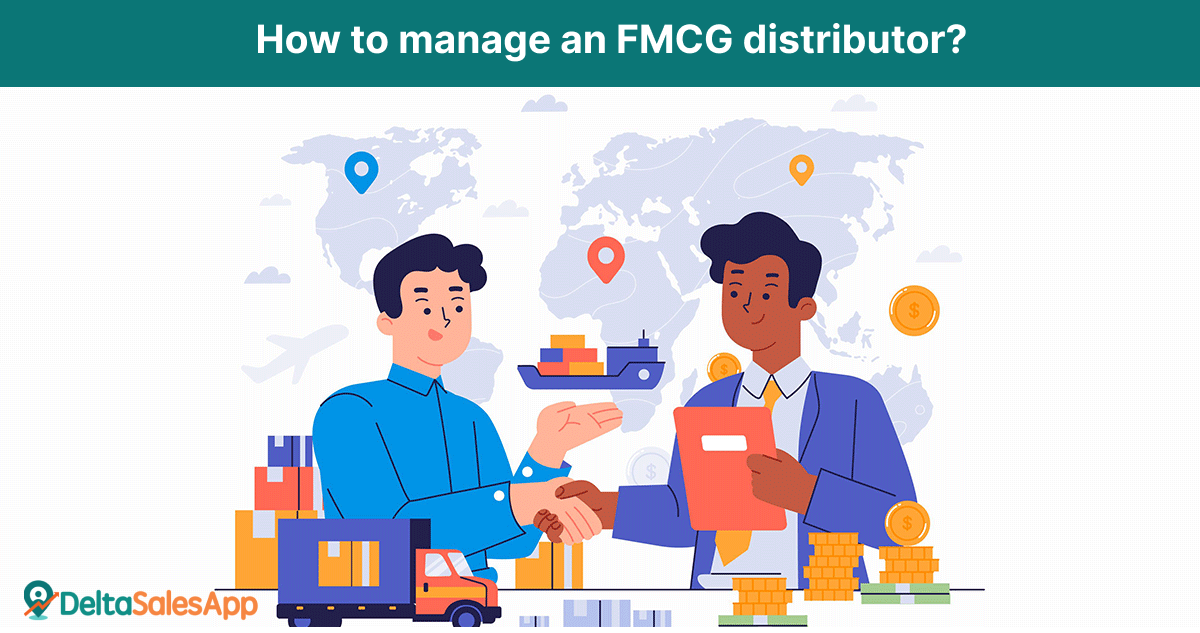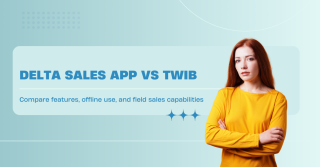How to manage an FMCG distributor?

Are you an FMCG business owner struggling to manage your distributor? Do you find it challenging to keep track of inventory, sales, and distribution channels? If so, don't worry! Our essential guide has got you covered. In this blog post, we'll share valuable tips and tricks that will help you effectively manage your FMCG distributor. From building a strong relationship with your distributor to optimizing your supply chain processes, we've got all the insider insights that will take your business to the next level. So sit back and read on - managing your FMCG distributor has never been easier!
Introduction to FMCG Distribution
To manage your FMCG distributor effectively, it is important to have a good understanding of the distribution process. The distribution of FMCG products generally follows a linear path from the manufacturer to the retailer, with each stage in the process adding value to the product.
The first stage in the process is manufacturing, where raw materials are turned into finished products. The second stage is warehousing, where finished products are stored until they are needed. The third stage is transportation, where products are moved from warehouses to retailers. The fourth and final stage is retailing, where products are sold to consumers.
Each of these stages presents challenges and opportunities for manufacturers, distributors, and retailers. To be successful, it is important to understand how each stage works and what role you play in it. This guide will give you an overview of the distribution process and some tips on how to manage your FMCG distributor effectively.
Identifying the Right Distributor for Your Business
As a fast-moving consumer goods (FMCG) business, you know that having the right distributor is essential to ensuring your products end up in the right hands. But with so many options out there, how can you be sure you're choosing the right one for your business?
Here are a few tips to help you identify the right distributor for your FMCG business:
1. Do your research. When it comes to finding a distributor, it's important to do your homework and research all of your options. Consider things like their experience in distributing FMCG products, their geographical reach, and their overall reputation.
2. Ask around. Once you've compiled a list of potential distributors, reach out to other FMCG businesses in your industry and see who they use and why. Getting firsthand recommendations can be incredibly helpful in narrowing down your choices.
3. Compare pricing. Of course, cost is always going to be a factor when choosing a distributor. Get quotes from each of the distributors on your shortlist and compare pricing structures to find the one that makes the most sense for your budget.
4. Evaluate their logistics capabilities. A good distributor will have a robust logistics operation that can ensure your products are delivered on time and in good condition. Ask about their warehousing and transportation capabilities to get a better sense of how they'll be able to meet your needs.
5. Make sure they're aligned with your brand identity
Setting Up an Effective Distribution Strategy
An effective distribution strategy is key to ensuring that your FMCG products reach the right customers, in the right quantities, and at the right time. Here are some tips and tricks for setting up an effective distribution strategy:
1. Know your target market. Who are you selling to? What are their needs and wants? Knowing your target market will help you determine the best channels for reaching them.
2. Research your competition. What channels are they using to reach their target market? What strategies are they using that are working well? Knowing your competition will help you develop a competitive edge.
3. Develop a clear and concise distribution plan. This plan should detail what products you will distribute, through which channels, and to what markets. Make sure to include measurable goals so that you can track and adjust your progress over time.
4. Implement and monitor your distribution strategy regularly. Review your sales data to see how well your strategy is performing. Make adjustments as needed to ensure that you are maximizing reach and sales potential.
Understanding the Different Types of FMCG Distributors
There are three main types of FMCG distributors: national, regional, and local.
National distributors are the largest and most well-known. They distribute products to retailers across the country. The benefits of working with a national distributor include having access to a larger customer base, more buying power, and greater economies of scale.
Regional distributors are smaller than national distributors but still distribute products to retailers in multiple states. The benefits of working with a regional distributor include having a more personal relationship and better customer service.
Local distributors only distribute products to retailers in one state. The benefits of working with a local distributor include having a very personal relationship and being able to work closely together on marketing initiatives.
Negotiating with Your Distributor and Creating a Win-Win Relationship
Negotiating with your distributor and creating a win-win relationship is essential to the success of your FMCG business. Here are some tips and tricks to help you get the most out of your interactions with your distributor:
1. Be clear about what you want from the relationship. What are your goals and objectives? What does success look like to you? Communicate this clearly to your distributor so they can understand your expectations.
2. Build trust and mutual respect. This is essential for any relationship, but especially important when negotiating. If you don't trust or respect each other, it will be difficult to come to an agreement that works for both of you.
3. Be willing to compromise. In any negotiation, there has to be some give and take on both sides to reach an agreement. Keep this in mind as you're negotiating with your distributor so you can find a middle ground that works for both of you.
4. Be prepared to walk away if necessary. If the negotiation isn't going well and it doesn't seem like you're going to be able to reach an agreement, don't be afraid to walk away from the table. Sometimes it's better to walk away than to make a deal that isn't in your best interests.
Tips for Managing Your Distributor
1. Establish strong lines of communication with your distributor. Make sure you have a clear understanding of their objectives and how they plan to achieve them.
2. Develop a good working relationship with your distributor. Get to know them on a personal level and build trust.
3. Be clear about your expectations. Communicate your goals and objectives clearly to avoid misunderstandings.
4. Keep an open mind. Be willing to listen to your distributor's suggestions and feedback. They may have valuable insights that you can use to improve your business.
5. Be patient. Building a successful partnership with a distributor takes time and effort. Don't expect overnight results.
Keeping Up With Demand and Meeting Deadlines
In the fast-paced world of FMCG distribution, it's essential to be able to keep up with demand and meet deadlines. Here are some tips and tricks to help you manage your distributor and keep your business running smoothly:
- Keep a close eye on your inventory levels and order more products as needed to avoid running out.
- Work closely with your distributor to ensure that orders are placed and shipped promptly.
- Have a contingency plan in place in case of unexpected delays or increases in demand.
By following these tips, you can avoid disruptions in your supply chain and keep your business running smoothly.
Conclusion
Managing your FMCG distributor is essential for the success of your business. With these tips and tricks, you will be able to effectively manage all aspects of distribution including pricing, inventory management, logistics, communication, and more. A well-managed distributor can help ensure that your products reach the right markets quickly and efficiently so that you can maximize profits from each sale. By using these strategies as outlined in this guide, you will be able to better understand how to manage your distributor successfully and grow your business over time.
Also to know about the changing trends in the FMCG industry, read our blog article on 5 Innovative Game Changing Trends in FMCG Industry








